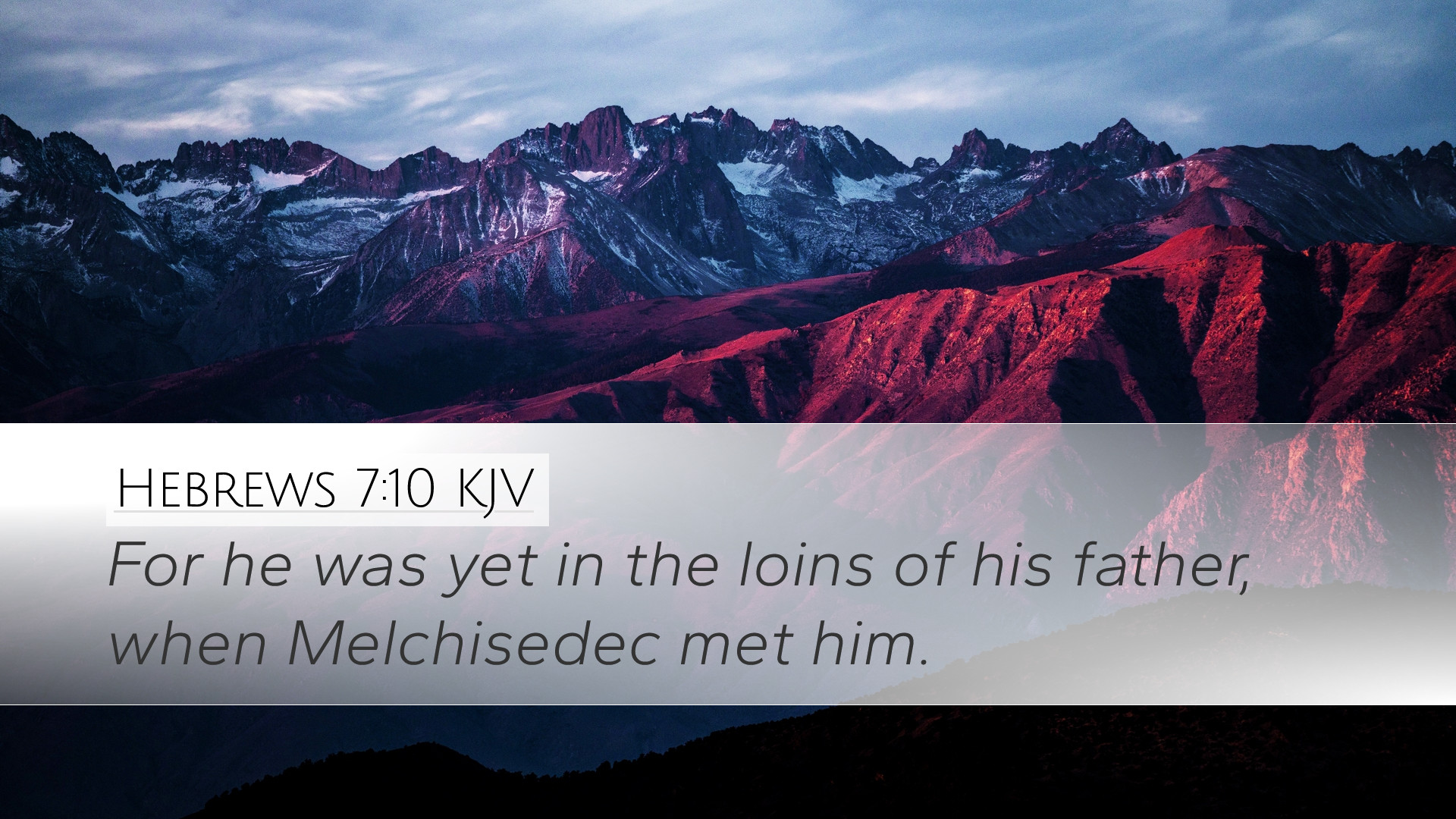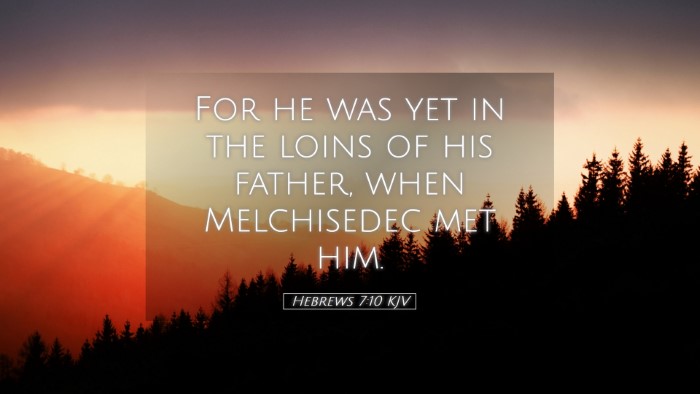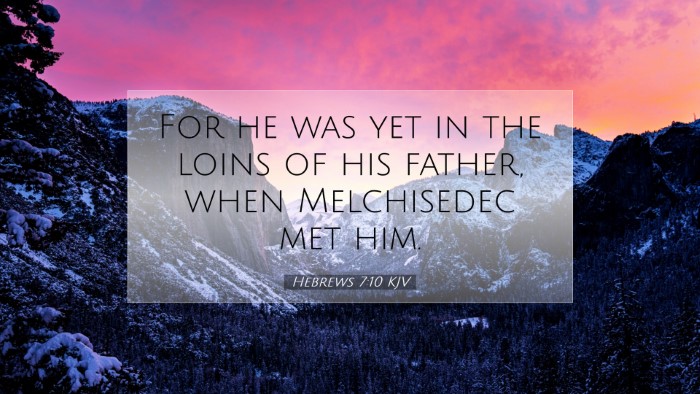Commentary on Hebrews 7:10
Introduction
The verse Hebrews 7:10 states: "For he was yet in the loins of his father, when Melchisedec met him." This brief yet profound statement carries rich theological themes that warrant deep exploration. The implications of this verse extend to Christ's priesthood, the order of Melchizedek, and the theological significance of lineage within the context of the Levitical priesthood.
1. Contextual Overview
In the Book of Hebrews, the author aims to reinforce the superiority of Christ's priesthood over the Levitical priesthood. By invoking Melchizedek, the author draws connections to the eternal priesthood of Jesus Christ, accentuating that His ministry transcends the limitations imposed by lineage and the law.
2. Interpretation & Commentary
Several prominent theologians and commentators offer insights into this verse. Here’s a compilation of their thoughts:
-
Matthew Henry:
Henry emphasizes the notion of Christ's eternal priesthood, noting that the reference to being "in the loins" of Abraham illustrates the theological reality that Levi, representing the Levitical priesthood, acknowledged Melchizedek’s superior priesthood. The inherent implication here is that the priesthood of Christ, which comes from the order of Melchizedek, surpasses all human distinctions.
-
Albert Barnes:
Barnes elaborates that the phrase "in the loins of his father" indicates a genealogical connection that was considered significant in Jewish tradition. By placing Levi in the loins of Abraham when Abraham met Melchizedek, Barnes interprets this as a testament to the priestly authority of Melchizedek being recognized by the future Levitical priesthood. This serves as an argument for the legitimacy of a priesthood outside the Levitical order.
-
Adam Clarke:
Clarke provides a linguistic analysis of the text, focusing on the implications of the original Greek language. He explains that the designation of being "in the loins" indicates a physical and spiritual lineage, suggesting that the priesthood's acceptance of Melchizedek's authority was inherent in Levi's very existence at that moment. This observation leads Clarke to assert that the Old Testament priesthood was foreshadowed to submit to a higher order represented in Christ.
3. Theological Implications
The intersection of lineage and divine authority is profoundly illustrated in this verse. The intertwining of Abram, Melchizedek, and Levi allows for the exposition of several theological themes:
- The Superiority of Christ's Priesthood:
The author of Hebrews meticulously contrasts the Levitical system with Christ's priesthood, underscoring that Melchizedek represents a greater authority, reigning as both king and priest, a duality absent in the Levitical model.
- Genealogical Significance:
The emphasis on genealogical lines reveals the importance of heritage in understanding God's plan. Abraham’s tithe to Melchizedek signifies a recognition of his covenantal authority, affirming the priesthood's divine sanction over human systems.
- Eternal Security in Christ:
As believers find their identity in Christ, Hebrews 7:10 implies a transcendence over traditional barriers, pinpointing that all believers are part of a priestly heritage in Christ—regardless of their earthly descent or past.
4. Practical Application
For pastors, students, and theologians, Hebrews 7:10 presents robust teaching material and life applications:
- Understanding of Authority:
Leaders in the church can reflect on the nature of authority derived from God rather than human lineage or understanding. It encourages leaders to seek divine qualification rather than merely traditional roles.
- Emphasis on the Eternal Priesthood:
Contemplating Christ’s priesthood establishes a foundation of hope, demonstrating that believers can approach God through Christ's eternal intercession, which gives confidence in prayer and worship.
- Identity and Community:
This verse can provoke reflection on the identity of the church as a community of priests who share in Christ’s ministry. It fosters unity among believers as they recognize their collective calling to serve in Christ’s name.
Conclusion
Hebrews 7:10 serves as a compelling reminder of Christ's superior priesthood and the nature of divine authority. The insights provided by significant theologians underscore the richness of biblical interpretation and the continued relevance of this ancient text for contemporary faith communities. As we reflect on this verse, we are reminded that in Christ, we find our identity and purpose, rooted in an eternal covenant that supersedes all earthly limitations.


